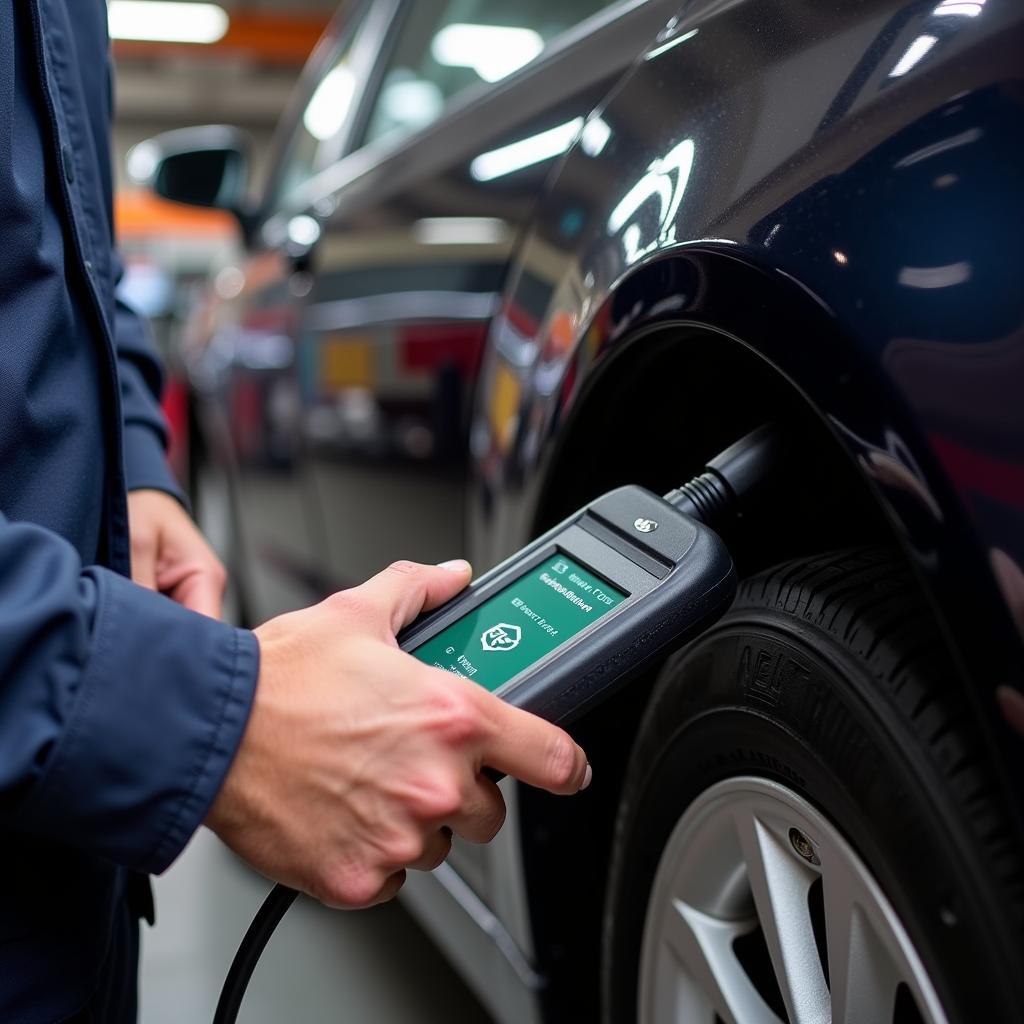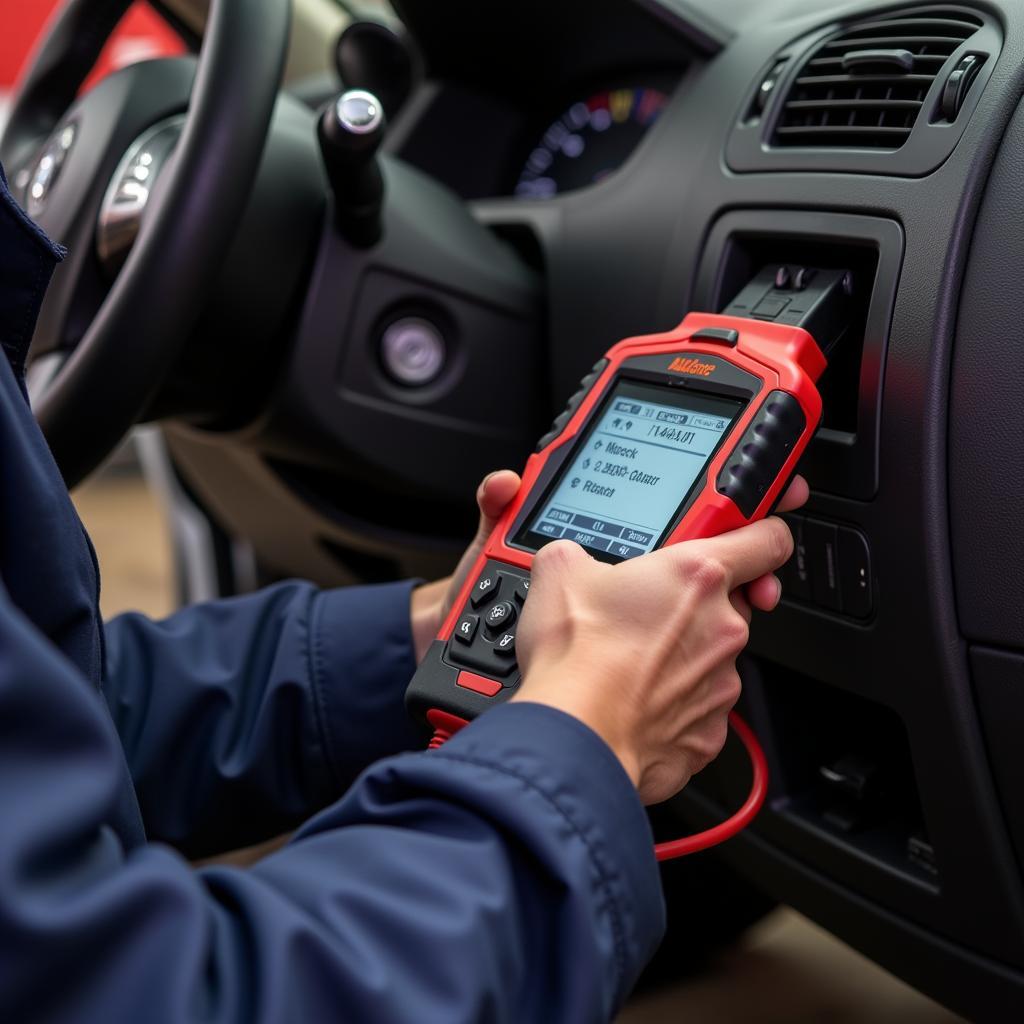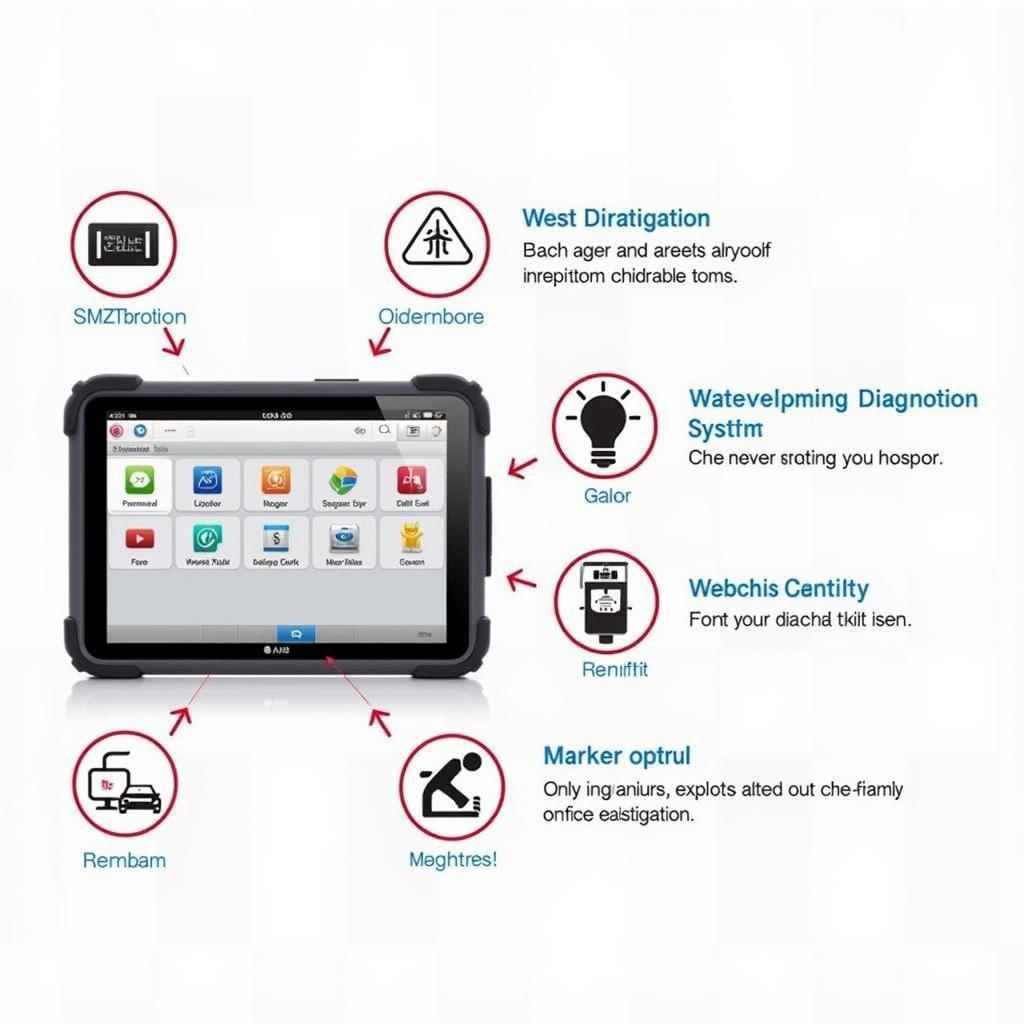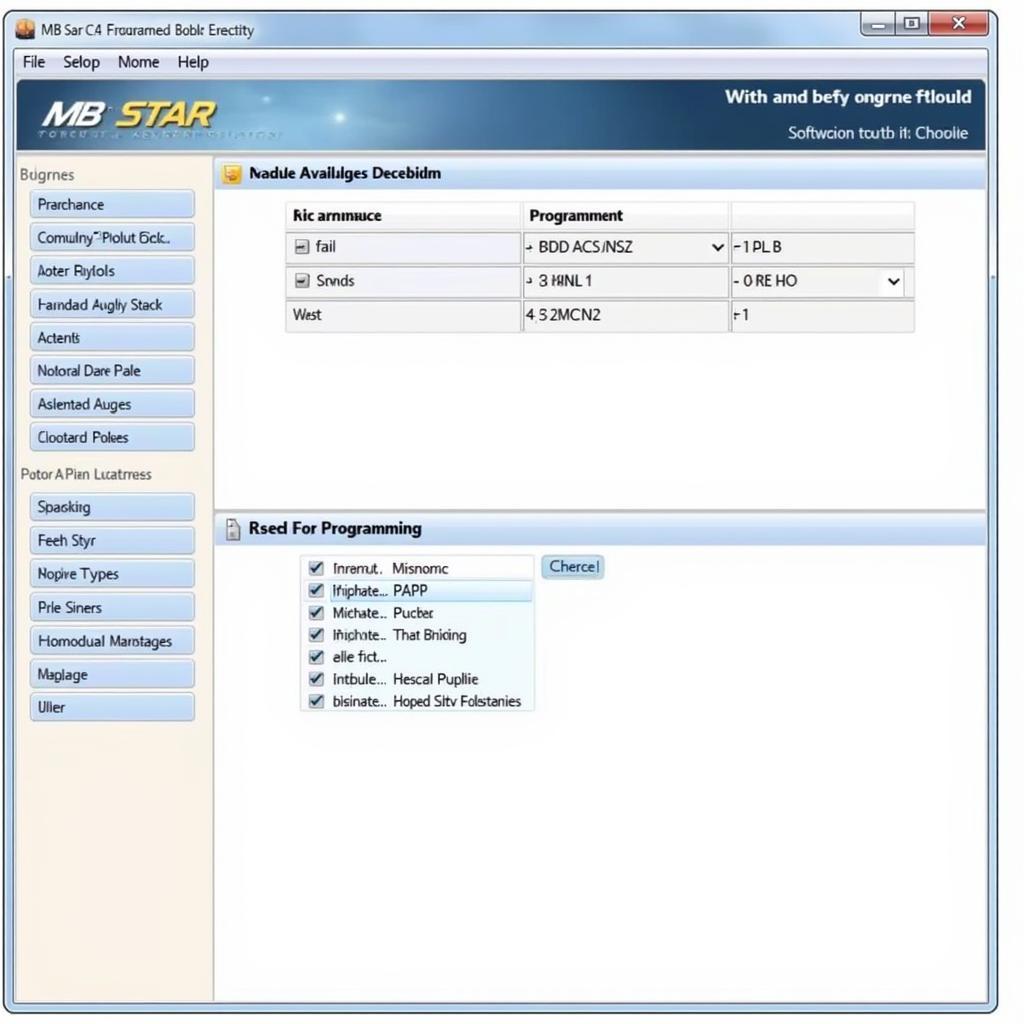Diagnostic tools have become essential for modern vehicle maintenance and repair. But what exactly are they, and how do they work their magic on your car? This article dives deep into the world of automotive diagnostic tools, exploring their functions, types, benefits, and how they empower both car owners and professional mechanics.
Unveiling the Mystery: What are Diagnostic Tools?
In simple terms, a diagnostic tool is a sophisticated piece of equipment designed to communicate with a vehicle’s onboard computer system. This system, often referred to as the Engine Control Unit (ECU), acts as the car’s brain, monitoring and controlling various components and functions.
Think of diagnostic tools as specialized translators, facilitating communication between you and your car. They retrieve and decode data from the ECU, presenting it in a comprehensible format that pinpoints issues affecting your vehicle’s performance.
Why are Diagnostic Tools Important?
In today’s technologically advanced vehicles, a simple visual inspection is often insufficient to diagnose complex issues. Diagnostic tools bridge this gap, providing an in-depth understanding of your car’s health.
Here’s how they prove invaluable:
- Accurate Diagnosis: They pinpoint the root cause of a problem, eliminating guesswork and unnecessary repairs.
- Enhanced Efficiency: By quickly identifying issues, they save valuable time and effort in the repair process.
- Cost Savings: Accurate diagnosis prevents unnecessary part replacements and labor costs.
- Improved Safety: By identifying potential issues early on, they help ensure the vehicle’s safety and reliability.
- Increased Control: Diagnostic tools empower car owners with knowledge about their vehicles, enabling informed decisions regarding maintenance and repairs.
Exploring the Different Types of Diagnostic Tools
The market offers a diverse range of diagnostic tools, each catering to specific needs and skill levels. Let’s shed light on some prominent categories:
1. Code Readers: Your Pocket-Sized Mechanics
These portable devices are primarily designed to read and clear diagnostic trouble codes (DTCs) stored in the ECU. They are user-friendly and affordable, making them suitable for car owners who prefer basic troubleshooting.
2. OBD-II Scanners: A Step Up in Functionality
Building upon code readers, OBD-II scanners provide a broader range of features, including:
- Live Data Streaming: Monitor real-time data from various sensors, such as engine RPM, speed, and temperature.
- Freeze Frame Data: Capture data at the moment a fault code is triggered, offering valuable insights into the issue.
- Component Activation: Test individual components like actuators and solenoids.
 Mechanic Using OBD-II Scanner on Vehicle
Mechanic Using OBD-II Scanner on Vehicle
3. Professional-Grade Scan Tools: The Ultimate Diagnostic Powerhouse
Utilized by experienced mechanics and dealerships, these advanced tools offer a comprehensive suite of features, including:
- Advanced Coding & Programming: Modify ECU parameters, perform software updates, and configure vehicle settings.
- Bi-Directional Control: Control various vehicle systems for advanced troubleshooting and component testing.
- Extensive Vehicle Coverage: Support a wide range of car makes and models, including older vehicles.
- Technical Support & Updates: Manufacturers provide ongoing technical assistance and software updates.
kindle diagnostics tool are an example of a specialized tool for a specific vehicle make.
4. PC-Based Diagnostic Tools: Bridging the Gap Between Software and Hardware
These tools connect to your computer, leveraging the processing power and user-friendly interface of software applications. They offer a balance between affordability and advanced features.
jaguar x type diesel diagnostic tool demonstrate the specialization of some diagnostic tools for specific car models.
Choosing the Right Diagnostic Tool: A Tailored Approach
Selecting the right diagnostic tool depends on your individual needs and expertise. Here’s a simplified breakdown:
- Car Owners: A code reader or a basic car diagnostic scanner tool is usually sufficient for basic troubleshooting and maintenance.
- DIY Enthusiasts: OBD-II scanners with live data streaming and component activation capabilities offer a wider range of diagnostic options.
- Professional Mechanics: Professional-grade scan tools are essential for comprehensive diagnostics, advanced programming, and handling complex repairs.
Diagnostic Tools: The Future of Automotive Repair
As vehicles become increasingly sophisticated, diagnostic tools will play an even more critical role in their maintenance and repair. Emerging trends, such as:
- Wireless Connectivity: Bluetooth and Wi-Fi-enabled tools offer seamless data transfer and remote diagnostics.
- Cloud-Based Platforms: These platforms provide access to vast databases, technical information, and remote expert support.
- Artificial Intelligence (AI): AI-powered diagnostics will further enhance accuracy, predict potential issues, and streamline repair processes.
Conclusion
Diagnostic tools have revolutionized the automotive repair landscape, empowering both car owners and professionals with the knowledge and tools to keep vehicles running smoothly. From basic code readers to advanced professional-grade systems, a wide range of options caters to diverse needs and expertise levels.
Remember, understanding the capabilities and limitations of your chosen diagnostic tool is crucial for accurate diagnosis and effective repairs.
automd diagnostic tool are another example of a powerful diagnostic tool available in the market.
If you’re looking for top-notch diagnostic tools or need expert advice on choosing the right one, don’t hesitate to contact us at ScanToolUS. Our team of professionals is dedicated to providing you with the best solutions for all your automotive diagnostic needs.
Contact us at: +1 (641) 206-8880 or visit our office at 1615 S Laramie Ave, Cicero, IL 60804, USA.




Pingback: Best Jaguar Diagnostic Tool: Your Complete Guide to Choosing the Right One - Car Scan Tool